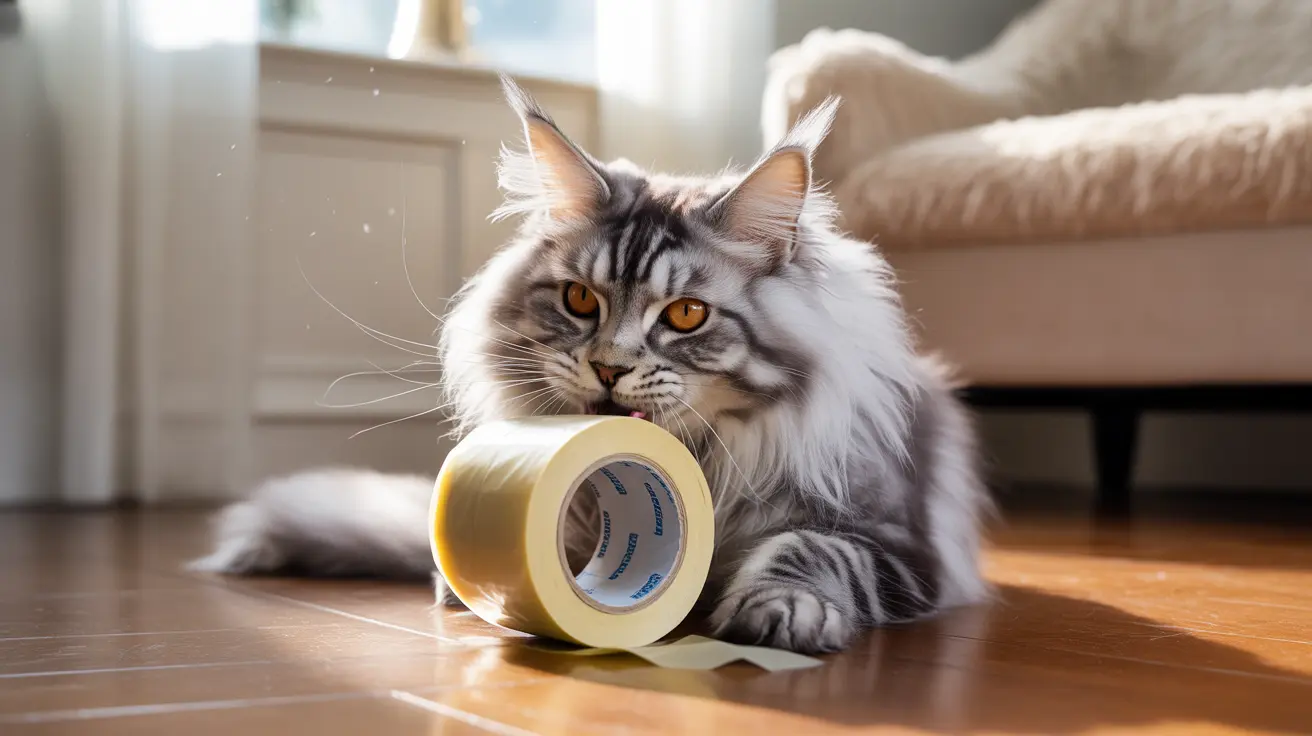Understanding Why Cats Are Attracted to Tape
Cats are naturally drawn to tape for several fascinating reasons. The adhesive on tape often contains animal-based compounds that can smell enticing to cats. Additionally, the texture and crinkly sound of tape can trigger a cat's predatory instincts, making it an irresistible target for play and exploration.
Many cats are particularly attracted to the sticky surface of tape, which can provide an interesting sensory experience. This tactile fascination, combined with their natural curiosity, can lead to experimental chewing or eating.
Health Risks of Tape Consumption
When a cat ate tape, it can lead to several serious health complications:
- Intestinal blockage requiring emergency surgery
- Choking hazards
- Chemical exposure from adhesives
- Internal injuries from sharp edges
- Damage to the digestive tract
These risks make it essential to address tape-eating behavior promptly and seriously.
Common Behavioral and Medical Causes
Behavioral Factors
Several behavioral issues can lead to tape consumption:
- Boredom and lack of stimulation
- Anxiety or stress
- Attention-seeking behavior
- Playful curiosity gone wrong
- Compulsive disorders
Medical Conditions
Sometimes, eating tape can indicate underlying health issues:
- Pica (consuming non-food items)
- Nutritional deficiencies
- Digestive disorders
- Dental problems
- Hormonal imbalances
Prevention and Management Strategies
To protect your cat from eating tape, implement these practical solutions:
Environmental Management
- Store tape and adhesive products in closed drawers or cabinets
- Use cat-proof storage containers
- Remove shipping tape from boxes immediately
- Keep craft supplies in designated cat-free areas
Enrichment Activities
Provide alternative activities to prevent boredom:
- Interactive toys and puzzle feeders
- Regular play sessions
- Climbing structures and scratching posts
- Window perches for environmental enrichment
- Cat grass or catnip gardens
When to Seek Veterinary Care
If you know your cat ate tape, watch for these warning signs that require immediate veterinary attention:
- Vomiting or retching
- Loss of appetite
- Lethargy or depression
- Straining to defecate
- Abdominal pain or swelling
- Changes in behavior
Frequently Asked Questions
Why does my cat keep chewing or eating tape?
Cats may chew or eat tape due to curiosity, boredom, stress, or underlying medical conditions like pica. The texture, sound, and smell of tape can be particularly attractive to cats.
Is it dangerous if my cat eats tape, and what health risks should I watch for?
Yes, eating tape can be very dangerous for cats. Watch for signs of intestinal blockage, including vomiting, loss of appetite, and lethargy. The adhesive can also contain toxic chemicals and cause internal injuries.
How can I stop my cat from eating tape and other non-food items?
Remove access to tape, provide plenty of enrichment activities, address any stress factors, and ensure your cat has appropriate toys and environmental stimulation. Consider using deterrent sprays on areas where tape must be exposed.
Could my cat's tape-eating behavior be a sign of a medical problem like pica?
Yes, compulsive tape eating could indicate pica or other medical conditions. If your cat frequently attempts to eat non-food items, consult your veterinarian for a thorough evaluation.
What are safe alternatives or enrichment activities to prevent my cat from eating tape?
Offer interactive toys, puzzle feeders, scratching posts, and regular play sessions. Create an engaging environment with cat trees, window perches, and rotating toys to keep your cat mentally and physically stimulated.
Remember, while it's important to understand why your cat ate tape, prevention is always better than treatment. By implementing these strategies and maintaining vigilant supervision, you can help protect your feline friend from this potentially dangerous behavior.






